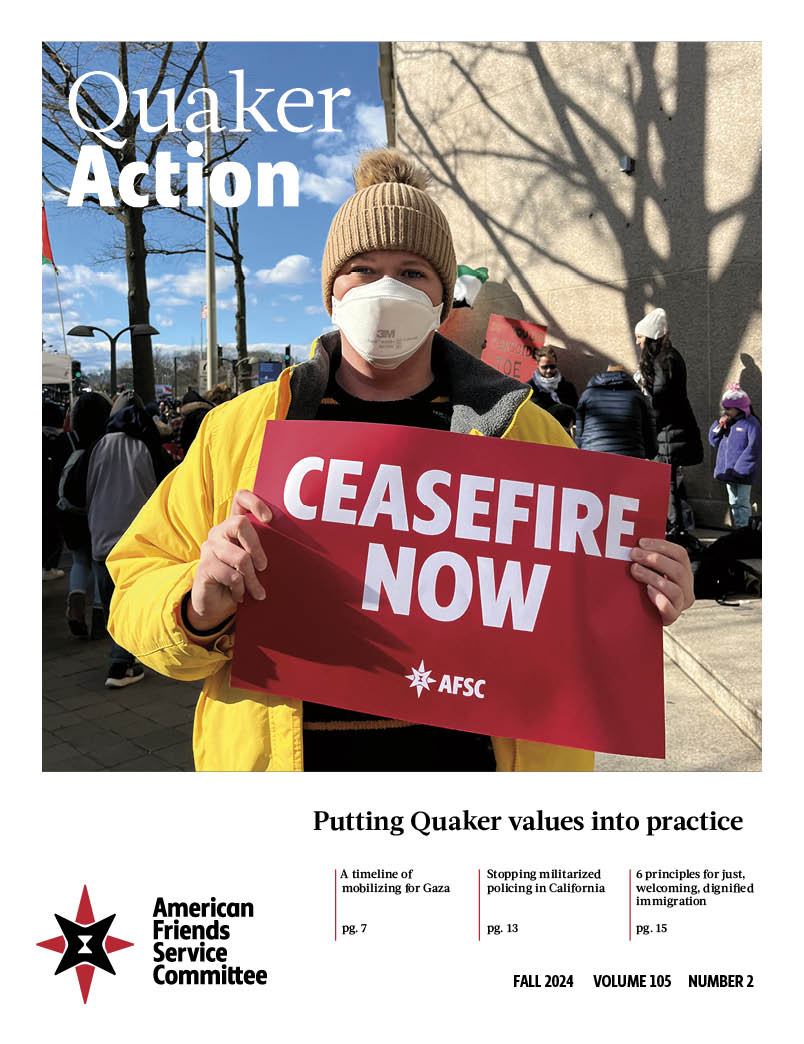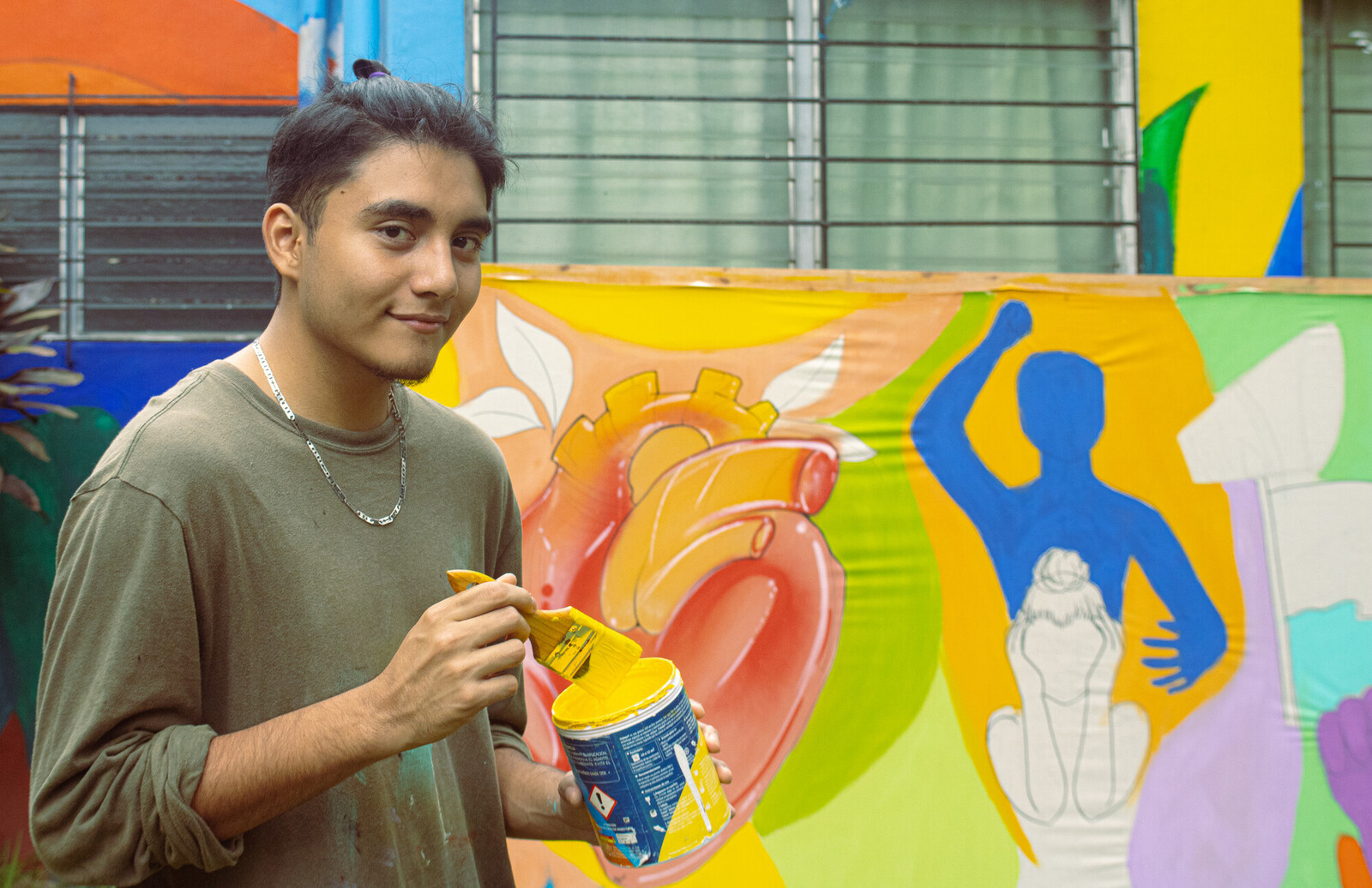
Human rights workshop for youth in El Salvador. PHOTO: AFSC/LATIN AMERICA AND CARIBBEAN
Everyone deserves a chance to build a good life, regardless of where they were born or when or how they migrated. But right now, our immigration system more often creates hardship and harm than offering opportunities for people to migrate safely. It doesn't have to be this way.
Here are six pillars of welcoming, just, and dignified approaches to immigration—and some examples of how AFSC is working with communities to uphold these principles.
Welcome people with dignity
People who migrate should be welcomed. Their basic human needs should be met. And their human and civil rights should be respected. That includes keeping families together.
SAN DIEGO, CALIFORNIA
Since September 2023, the U.S. Border Patrol has kept migrants in open-air detention sites along the U.S.-Mexico border without any basic services. Thousands of people, including children, have arrived at these sites, often with only the clothes they’re wearing. After hundreds, even thousands of miles, they are thirsty, hungry, and sometimes need urgent medical attention. Still, many wait hours or days before they have the chance to seek asylum in the U.S.
Nearly every day, AFSC staff, partners, and volunteers help at a detention site between two border walls in San Diego, California. Through the barriers, we provide water, food, and clothing, and tend to people’s wounds. We also answer questions and give information about what to expect in custody.
Over the past year, we have documented the many abuses we have witnessed. We are using this information to demand that Border Patrol agents stop holding people in open-air sites and provide basic services.
"Ultimately, we are pushing for a future where no one is forced to endure such mistreatment and indignity as they seek a better life,” says Pedro Rios, director of AFSC’s U.S.-Mexico Border Program.
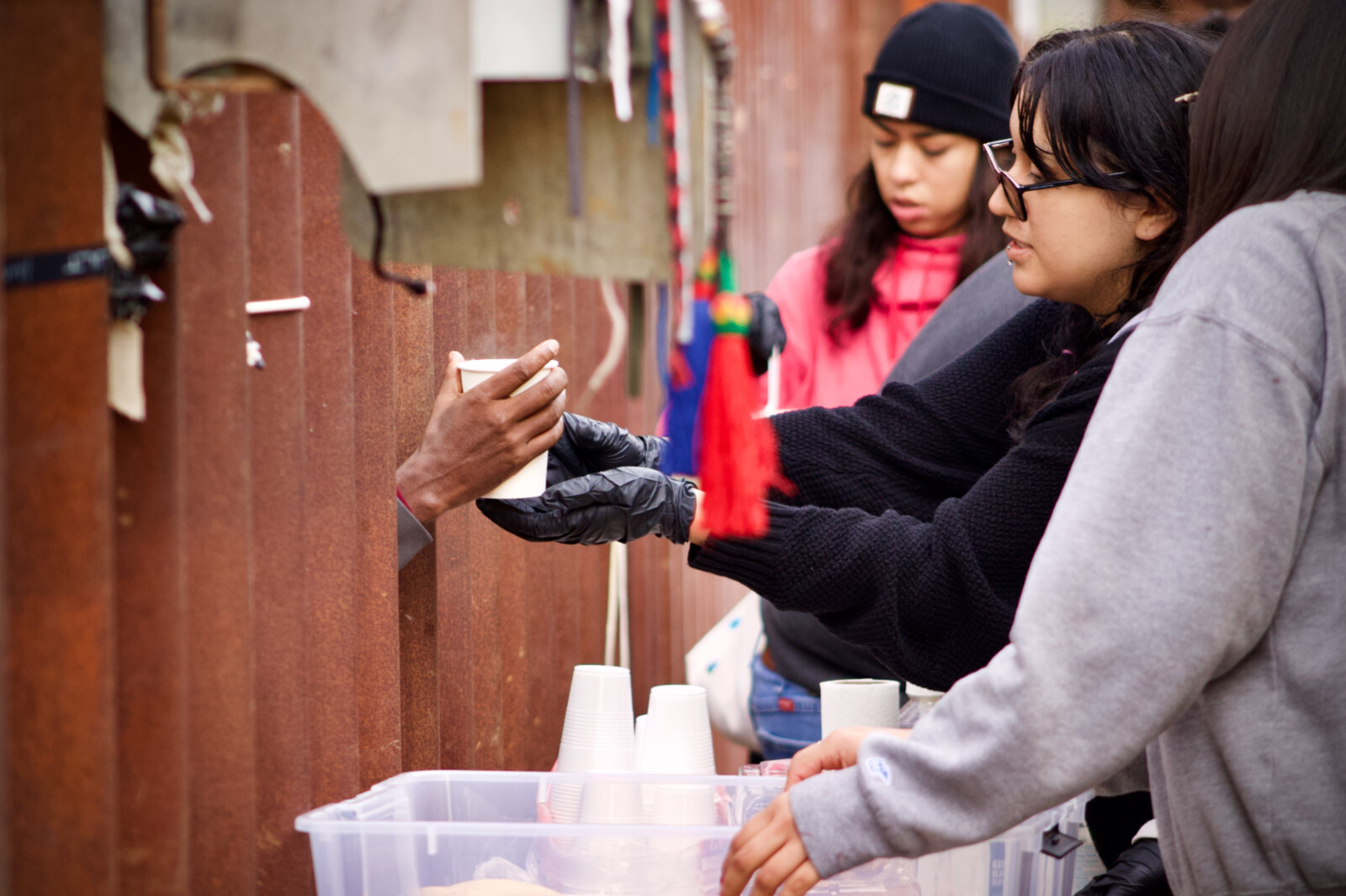
AFSC's humanitarian response at the U.S.-Mexico border. Photo: Pedro Rios/AFSC
Offer paths to citizenship
Opportunities to pursue citizenship should be equally available to all immigrants, regardless of where they were born or when they came.
People who desire to return to their home countries should be able to do so safely, whether on a temporary or permanent basis.
Protect the right to seek asylum
People who need asylum or other forms of protection should have access to just, orderly, accessible, and humane processes.
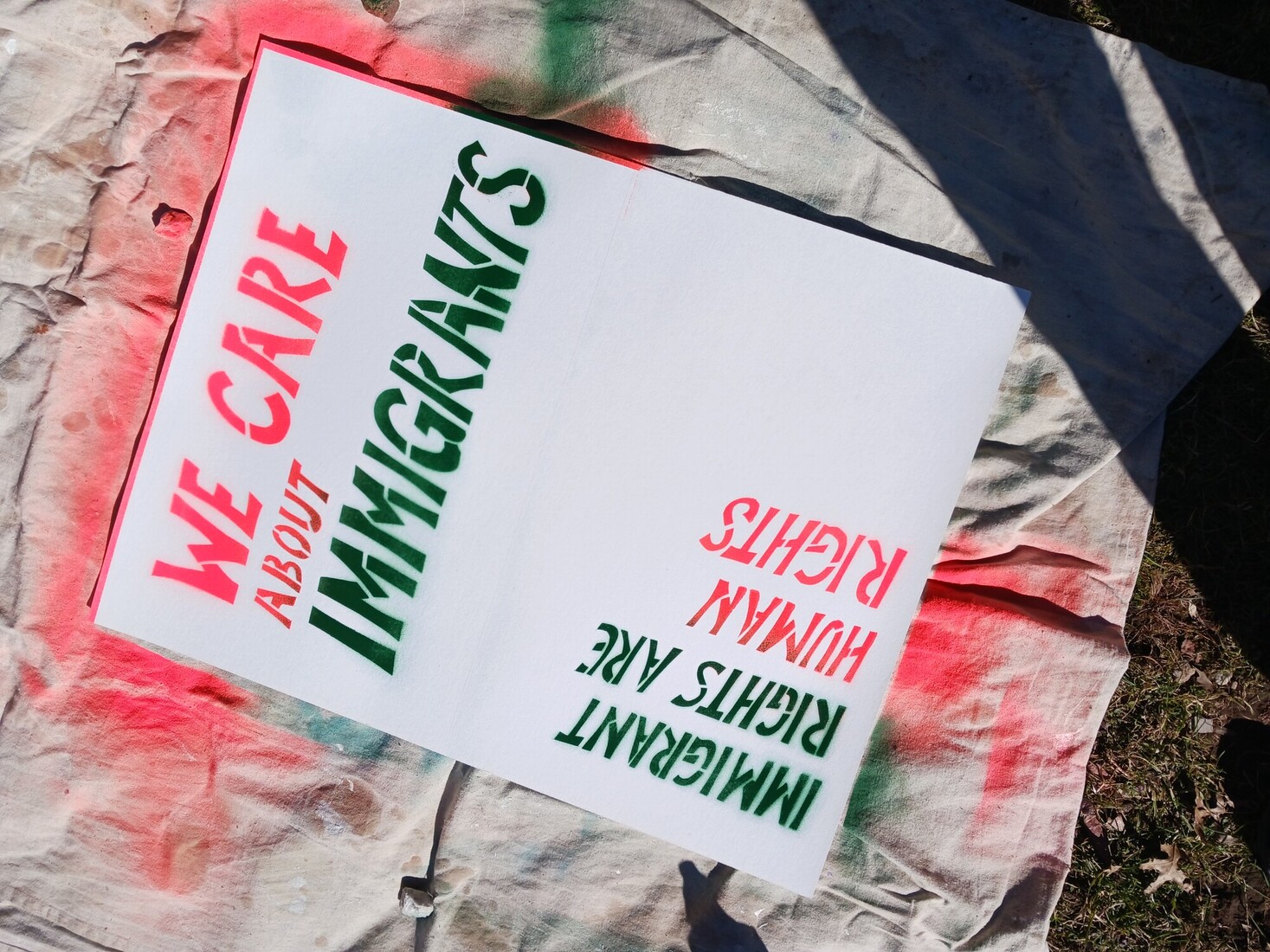
Photo: Serges Demefack/AFSC
NEW JERSEY
Through AFSC’s work representing people seeking asylum, we ensure that everyone has access to this fundamental human right. We advocate for policies that remove barriers for people who want to claim asylum as they flee war, persecution, or other crises.
In New Jersey, AFSC lawyers represent people every day as they navigate complex administrative hurdles and backlogs in the immigration courts. We provide free legal representation to hundreds of asylum seekers every year, which can make all the difference for immigrants and their families. That includes people like Pierre*, who faced political persecution and torture in the Democratic Republic of Congo (DRC). After arriving in the U.S., he was jailed in an immigration detention center in New Jersey.
AFSC took on Pierre’s case and helped him apply for asylum. After nearly six months in detention, he was granted asylum and finally freed. Now he can bring his wife and children from the DRC to live with him in safety.
“As we provide immigrants with legal services, we’re also advocating for more just, humane immigration policies and increased resources for immigration courts and legal representation,” says Alexandra Gonçalves Peña, AFSC’s legal services director in New Jersey.
*A pseudonym is used to protect our client's identity.
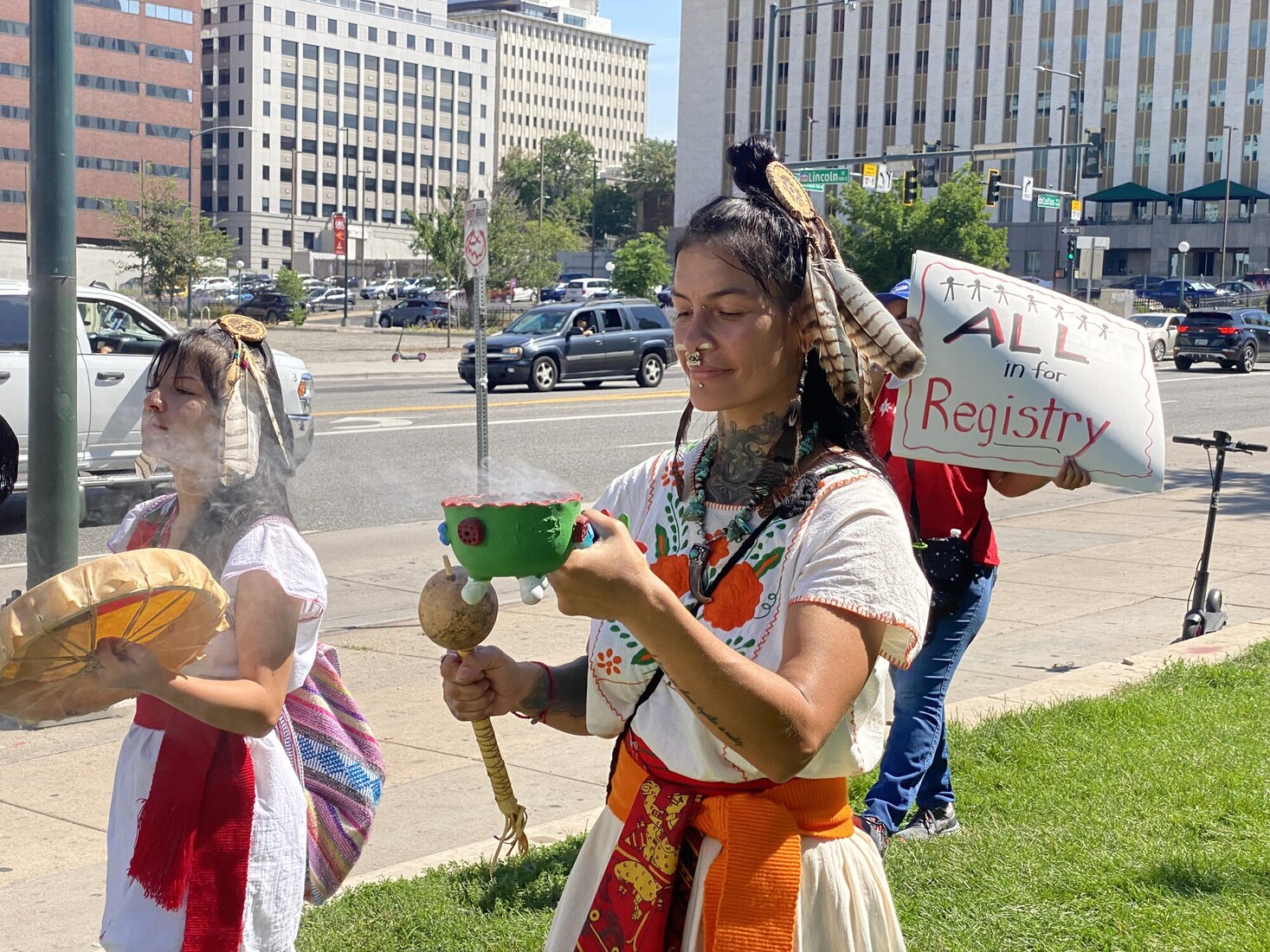
March for immigrant rights in Denver. Photo: AFSC/Colorado
Ensure everyone can meet basic needs, regardless of status
Everyone should have access to a living wage, health care, education, and decent housing. Employment opportunities should be open to all. And everyone’s labor rights should be protected.
Value immigrant leadership
Immigrants are leading efforts to build resilient communities for everyone. Their efforts should be recognized and supported.
COLORADO
Those most affected by the U.S. immigration system understand its problems deeply. They also know how best to solve them. Since 2012, AFSC has helped immigrants in Colorado develop their leadership skills through the Not1More Deportation Table. Every member of the group has either faced deportation themselves or helped a loved one through the process.
Not1More members support each other throughout their immigration case. They receive training from AFSC staff in nonviolent direct action, meeting facilitation, cultural work, and more. Together, they build skills to take on leadership roles and advocate for policies that respect the rights and dignity of all immigrants.
The impact of their collective work has been significant. “When people speak for themselves, it resonates strongly with policymakers and the public,” says Jennifer Piper, co-director of AFSC’s Colorado Immigrant Rights Program. Recently, Not1More members successfully advocated for policies making driver’s licenses more accessible for immigrants, creating new worker protections in agriculture, and including more people in health care and unemployment benefits. Group members have also joined community advisory committees, nonprofit boards, and government oversight bodies.
“We’re providing space and tools for immigrants to develop their leadership,” Jennifer says. “That helps individuals transform their vision of themselves—and their community’s vision of the role they can play in working toward shared liberation.”
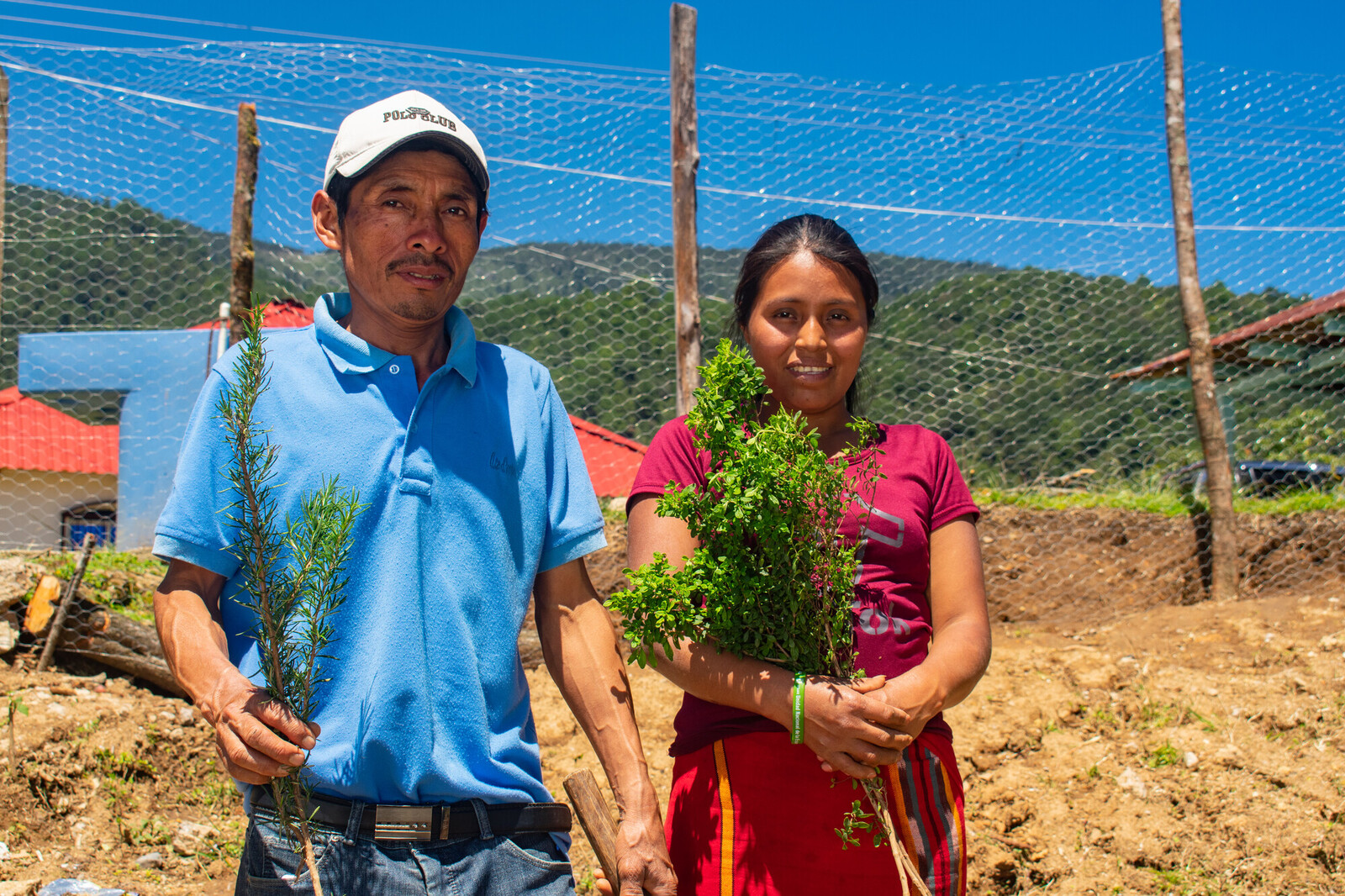
Photo: Luis Ochoa
Help people live safely wherever they are
No one should be forced to migrate because they can’t meet basic needs or because of violence, inequitable economic policies, climate degradation, or other forms of injustice. Migration should be a choice for all of us.
GUATEMALA
The highlands of western Guatemala have long been home to Ixil Mayan communities. Agriculture has always been their source of livelihood. But in recent decades, foreign development projects have threatened their lands and traditional way of life. These projects have depleted natural resources, degraded the environment, and displaced communities.
Since 2019, AFSC has supported Ixil community members in organizing to peacefully defend their land, rights, and ancestral practices. Working with our local partner Chemol Txumb'al, we provide popular education workshops to Ixil youth. These workshops examine capitalism, colonialism, and patriarchy—and ways for community members to advocate for themselves.
We also support community projects that preserve traditional farming practices and generate additional income for families. Community members are growing medicinal plants and learning how to process them to make them available to the public. Youth are also cultivating native bees that produce honey with healing properties. At a time when many people in Guatemala are forced to migrate to survive, these community members are resisting displacement and reclaiming their heritage. In the process, they are building more just, sustainable communities where everyone can thrive.
